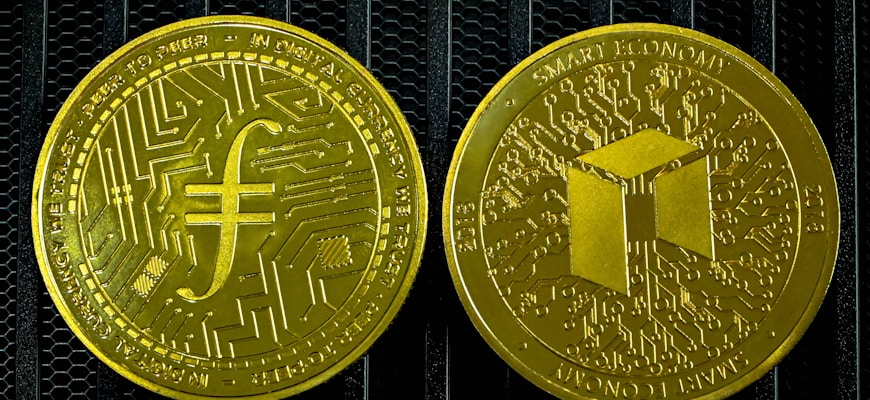The Future of NFT Tokens: Market Trends and Analysis

- Understanding NFT Tokens: A Comprehensive Overview
- Exploring the Evolution of NFTs in the Digital Market
- Key Factors Driving the Growth of NFT Token Market
- Challenges and Opportunities in the Future of NFTs
- The Role of Blockchain Technology in NFT Token Ecosystem
- Predictions for the Future of NFT Tokens: Expert Insights
Understanding NFT Tokens: A Comprehensive Overview
NFT tokens have gained significant popularity in recent years, revolutionizing the way digital assets are bought and sold. Non-fungible tokens represent unique digital items such as art, music, videos, and even virtual real estate. These tokens are built on blockchain technology, which ensures their authenticity and scarcity.
Unlike cryptocurrencies like Bitcoin or Ethereum, NFT tokens are indivisible and cannot be exchanged on a like-for-like basis. Each NFT token is unique and cannot be replicated, making it a highly sought-after collectible in the digital world. The ownership of an NFT token is recorded on a blockchain, providing a transparent and secure way to verify its authenticity.
One of the key features of NFT tokens is their ability to be easily traded on various online marketplaces. This has created a booming market for digital artists, musicians, and creators to monetize their work directly with their fans. Moreover, NFT tokens have opened up new possibilities for ownership and provenance in the digital space, allowing creators to retain control over their creations and generate income through royalties.
As the NFT market continues to evolve, it is essential for investors and creators to understand the intricacies of NFT tokens. By gaining a comprehensive overview of how NFT tokens work, their potential applications, and the risks involved, individuals can make informed decisions when participating in the NFT ecosystem. With proper knowledge and due diligence, stakeholders can navigate this emerging market with confidence and seize the opportunities it presents.
Exploring the Evolution of NFTs in the Digital Market
NFTs have been making waves in the digital market, revolutionizing the way we perceive and trade digital assets. These unique tokens have gained immense popularity due to their ability to represent ownership of digital content in a secure and transparent manner. As the market for NFTs continues to evolve, it is crucial to explore the trends and developments that have shaped their trajectory.
One key aspect of the evolution of NFTs is the increasing diversity of digital assets being tokenized. While art and collectibles were among the first categories to gain traction in the NFT space, we are now seeing a wide range of assets being tokenized, including music, videos, virtual real estate, and even tweets. This diversification has opened up new opportunities for creators and collectors alike, expanding the potential use cases for NFTs.
Another important trend in the NFT market is the growing emphasis on sustainability and environmental impact. With concerns about the energy consumption of blockchain networks used to mint and trade NFTs, there is a push towards more eco-friendly alternatives. Some projects are exploring the use of proof-of-stake mechanisms or layer 2 solutions to reduce the carbon footprint of NFT transactions, reflecting a broader shift towards sustainability in the digital asset space.
Furthermore, the market for NFTs is becoming increasingly interconnected with other sectors, such as gaming, social media, and e-commerce. Integrating NFTs into these platforms allows for new ways of engaging with digital content and monetizing online interactions. For example, gaming companies are leveraging NFTs to create unique in-game items and experiences, while social media platforms are exploring NFT-based features to reward content creators and foster community engagement.
In summary, the evolution of NFTs in the digital market is characterized by diversification, sustainability, and integration with other sectors. As these trends continue to shape the landscape of digital assets, it is essential for market participants to stay informed and adapt to the changing dynamics of the NFT ecosystem. By exploring these developments, we can gain valuable insights into the future of NFT tokens and their impact on the broader digital economy.
Key Factors Driving the Growth of NFT Token Market
The growth of the NFT token market is being primarily driven by several key factors that are shaping the future of digital asset ownership. These factors are instrumental in fueling the adoption and expansion of NFT tokens across various industries and sectors. Some of the key factors driving the growth of the NFT token market include:
- The increasing popularity of digital art and collectibles among investors and collectors.
- The rise of decentralized finance (DeFi) platforms that are integrating NFT tokens for unique financial products.
- The growing interest from brands and celebrities in launching their own NFT token collections to engage with fans and monetize their digital content.
- The development of blockchain technology that enables secure and transparent transactions for buying, selling, and trading NFT tokens.
- The emergence of NFT marketplaces and platforms that are simplifying the process of creating, minting, and selling NFT tokens for creators and buyers.
These key factors are driving the growth of the NFT token market and are expected to continue shaping the future of digital ownership and asset management. As more industries and individuals recognize the value and potential of NFT tokens, the market is poised for further expansion and innovation in the years to come.
Challenges and Opportunities in the Future of NFTs
As NFT tokens continue to gain popularity in the digital art and collectibles space, there are both challenges and opportunities that lie ahead for this emerging market. One of the main challenges facing NFTs is the issue of scalability, as the current blockchain networks they operate on can struggle to handle the high volume of transactions during peak times. This bottleneck can lead to increased transaction fees and slower processing times, which can hinder the growth of the NFT market.
However, there are also opportunities for growth and innovation in the future of NFTs. One such opportunity is the potential for NFTs to revolutionize the gaming industry, allowing players to truly own and trade in-game assets. This could open up new revenue streams for game developers and create a more immersive gaming experience for players.
Another opportunity for NFTs lies in the world of digital identity and ownership. NFTs have the potential to revolutionize how we prove ownership of digital assets, such as music, videos, and even real estate. By creating a verifiable and secure way to prove ownership, NFTs could streamline processes such as licensing and royalties, benefiting both creators and consumers.
The Role of Blockchain Technology in NFT Token Ecosystem
Blockchain technology plays a crucial role in the NFT token ecosystem, providing a secure and transparent platform for buying, selling, and trading digital assets. By utilizing blockchain technology, NFT tokens are given unique digital certificates of ownership, ensuring their authenticity and scarcity. This technology also allows for the verification of the provenance and ownership history of each NFT token, giving buyers confidence in the assets they are purchasing.
One of the key benefits of blockchain technology in the NFT token ecosystem is its ability to eliminate the risk of fraud and counterfeit goods. Each NFT token is assigned a unique digital signature that is recorded on the blockchain, making it impossible for the token to be replicated or tampered with. This level of security and immutability is essential in ensuring the value and integrity of NFT tokens in the market.
Furthermore, blockchain technology enables smart contracts to be integrated into NFT transactions, automating the process of transferring ownership and royalties to creators. Smart contracts are self-executing contracts with the terms of the agreement directly written into code, eliminating the need for intermediaries and reducing the risk of disputes. This streamlines the buying and selling process of NFT tokens, making transactions more efficient and cost-effective.
Overall, blockchain technology plays a vital role in the NFT token ecosystem by providing a secure and transparent platform for digital asset ownership. Its ability to verify authenticity, eliminate fraud, and automate transactions through smart contracts makes it an essential component in the future of NFT tokens. As the market continues to grow and evolve, blockchain technology will undoubtedly play a central role in shaping the success and sustainability of NFT tokens in the digital economy.
Predictions for the Future of NFT Tokens: Expert Insights
Experts predict a bright future for NFT tokens, with continued growth and adoption across various industries. One key trend to watch out for is the integration of NFTs into the gaming sector, where they can be used to create unique in-game items and experiences. This trend is expected to drive significant demand for NFTs and boost their overall value in the market.
Another area where NFTs are expected to make a big impact is in the world of digital art and collectibles. As more artists and creators embrace this technology, we can expect to see a proliferation of NFT-based artworks and collectibles, creating new opportunities for both creators and collectors alike. This trend is likely to reshape the art market and how we perceive ownership of digital assets.
Furthermore, experts believe that NFTs will continue to evolve beyond their current use cases and find applications in areas such as real estate, ticketing, and even identity verification. The ability to create unique, verifiable digital assets has the potential to revolutionize how we transact and interact online, opening up a whole new world of possibilities for businesses and consumers alike.




